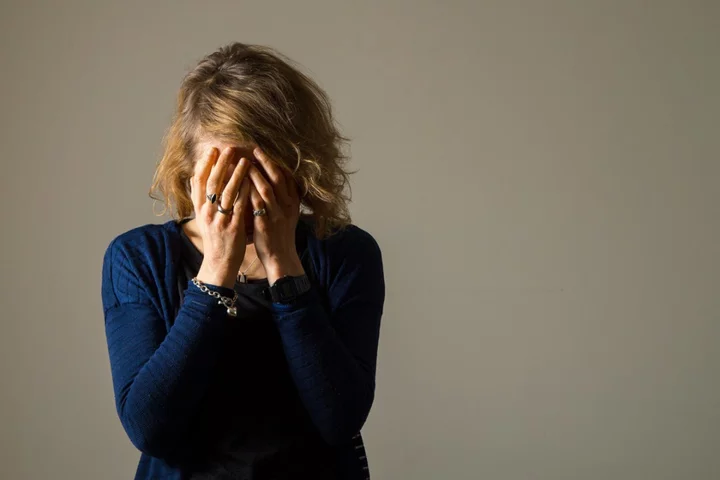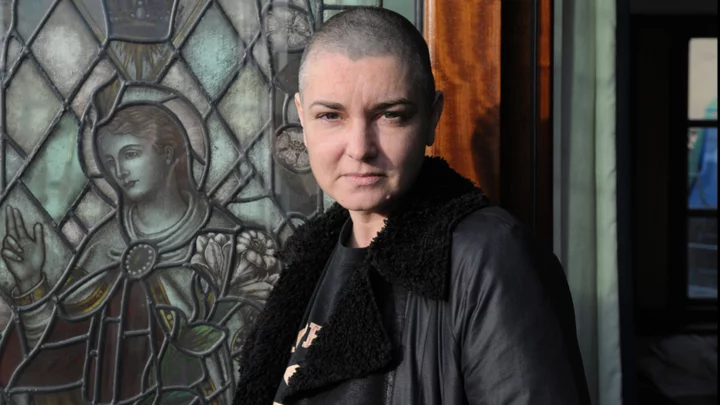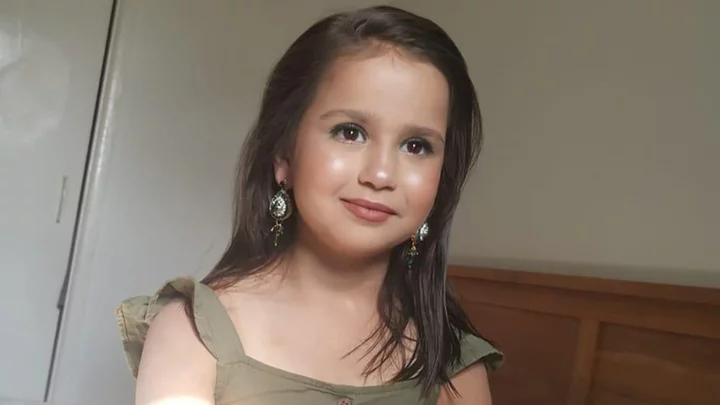
EA Sports FC 24: Top rated Bundesliga players
The highest rated players on EA Sports FC 24 from the Bundesliga ahead of its release on 29 September, including Harry Kane, Manuel Neuer and Thomas Muller.
2023-08-24 16:17

How to help your teen with comparison culture on GCSE results day
Whether your child’s GCSE results are high, low, or somewhere in between, one thing is inevitable – they’ll compare them with their friends’ grades. This comparison culture, which is far more pervasive because of social media, can leave teens feeling inadequate because their results are worse than their mates, or make their friends feel useless if roles are reversed. But although there’s no getting away from teenagers comparing their results both on and offline, what can parents do to try and limit the damage this it can cause? Former teacher Dr Julia Clements, principal educational psychologist at the children’s mental health charity Place2Be, says the comparison of results will undoubtedly impact some teenagers’ wellbeing. “Your teenager is bound to compare their results with their peers at the same school, but also through social media,” she acknowledges. “Although this comparison is inevitable, it may be harmful for your child’s wellbeing – especially if they’ve not done as well as expected. “Indeed, the term ‘compare and despair’ can be especially pertinent on days like today.” Sharon Davies, CEO of Young Enterprise, a charity which helps young people navigate the changing world of work, adds: “The pressure to measure up to their friends’ achievements can be overwhelming, leading to feelings of inadequacy or disappointment.” So how can parents help their teens? 1. Ask how they feel If your child is down on themselves and rating themselves negatively in comparison to their friends, they may reject any positives and praise parents provide, Clements warns. “It may be more useful, in the first instance, to ask them how they’re feeling, and to acknowledge and validate difficult feelings,” she advises. Such feelings may include disappointment, sadness, anger, shame, or feeling as if they’ve let themselves – and you – down. “If your child is feeling like this, it’s important to give them the message that you love them unconditionally and you’re proud and pleased to be their parent because of who they are – not because of the grades they achieve,” she stresses. 2. If they’ve done better than their friends… If your child has achieved good results, which may be better than some of their friends, then they’ll want to celebrate. But while celebrating is of course a great idea, Clements suggests: “You may want to talk with them about how to be sensitive and compassionate towards their friends who haven’t done so well.” 3. Help them turn a negative into a positive Consultant clinical psychologist Dr Nihara Krause specialises in teenage mental health and is working with the Talking Futures campaign to help parents engage their children in meaningful conversations about their futures. She says if a young person doesn’t get the grades they were hoping for, they may be highly critical of their performance in comparison to their peers. But she suggests parents show them how to turn their negative thinking around. “Parents should encourage their children to focus on recognising the approach they took to exams this time round and take steps to reflect on what they could do to achieve a better result in the future. Focus on what helps a young person gain their own personal best, no matter how their results compare with others.” 4. Don’t ask about their friend’s results or post about them Krause says parents should try to celebrate their child’s achievements for what they are and avoid asking about their friends’ results. “To avoid comparison, parents should also avoid sharing their child’s results on social media,” she says. 5. Don’t be too hard on yourself Clements points out that comparison culture may not just affect teenagers – if their results aren’t as good as expected, mums and dads might start comparing their own parenting during the revision and exam period with other parents whose kids have got better results. “As a parent or carer, you may also be drawn into unhelpful comparisons with others,” says Clements, “and you may question the amount of support you were able to provide your child in the run up to their exams. However, today is not a day for self-criticism or judgements – some self-compassion is important at this time.” 6. Reach out for support This might be the first results day many parents have gone through with their child, and while comparisons with other teens may well have been unhelpful, Davies points out that schools will have career advisers and teachers available who can offer support and advice. There are also online forums and blogs where those in similar situations share their experiences. She says: “No-one is expecting you to have all the answers – that’s why there’s support available.” Read More Charity boss speaks out over ‘traumatic’ encounter with royal aide Ukraine war’s heaviest fight rages in east - follow live Women more severely affected by ME, study claims 4 hacks to get teens off the sofa and get active – as study warns of heart damage Taking adult education classes may lower risk of dementia, study suggests
2023-08-24 13:58

Women more severely affected by ME, study claims
Women with myalgic encephalomyelitis/chronic fatigue syndrome (ME/CFS) tend to have more symptoms and co-occurring conditions than men, according to the world’s largest study of the disease. The study, entitled DecodeME, reveals women who have the condition for more than 10 years are more likely to experience increasingly severe symptoms as they get older. ME/CFS is estimated to affect more than 250,000 people in the UK, of all ages and from all social and economic backgrounds. Its key feature, called post-exertional malaise, is a delayed dramatic worsening of symptoms following minor physical effort. Other symptoms include pain, brain fog and extreme energy limitation that does not improve with rest. Causes are unknown and there is currently no diagnostic test or cure. Experts from the University of Edinburgh analysed anonymous survey questionnaires from more than 17,000 people with ME/CFS. Two-thirds of women, and slightly more than half of men, reported at least one active co-occurring condition. Similarly, 39.2% of women and 28.6% of men reported at least one inactive co-occurring condition. We discovered that the disease is worse for women, in older people, and many years after their ME/CFS started Professor Chris Ponting of the University of Edinburgh A condition was considered active if the participant had experienced symptoms in the preceding six months. The most common active co-occurring condition was irritable bowel syndrome, with clinical depression, fibromyalgia, anaemia and hypothyroidism also featuring prominently. Women also reported, on average, more symptoms than men – 42 compared with 36. The most common of these symptoms were brain fog – a term commonly used to describe the cognitive impairment experienced by participants – unrefreshing sleep and muscle pain. These findings highlight the very serious impact ME/CFS has on women who are disproportionately affected Sonya Chowdhury, chief executive of Action for M.E Participants were also asked to define the severity of their illness from mild to very severe using definitions from the UK’s National Institute for Health and Care Excellence guidelines. Experts identified that being a woman and having ME/CFS for more than 10 years are risk factors for severe illness, with symptoms increasing in intensity as they age. Professor Chris Ponting, study lead from the MRC human genetics unit at the University of Edinburgh’s Institute of Genetics and Cancer, said: “ME/CFS is a devastating disease affecting a UK population the size of Derby. “We discovered that the disease is worse for women, in older people, and many years after their ME/CFS started. “Our hope is that DecodeME’s genetic results will shed light on why certain groups are more susceptible to ME/CFS than others.” Sonya Chowdhury, chief executive of Action for M.E. and chair of the management group of the study, said: “These findings highlight the very serious impact ME/CFS has on women who are disproportionately affected. “It’s important to also recognise the impact that it has on men who have ME/CFS and we thank the 20,000 men and women who have already signed up to take part in this very important study. “We still need more to join us, so if you are 16 or older, live in the UK and have a diagnosis of ME/CFS, please do take part now to help us decode ME at www.decodeme.org.uk/portal.” Read More Charity boss speaks out over ‘traumatic’ encounter with royal aide Ukraine war’s heaviest fight rages in east - follow live 4 hacks to get teens off the sofa and get active – as study warns of heart damage Taking adult education classes may lower risk of dementia, study suggests Indiyah Polack: I didn’t want to go on Love Island because of my acne
2023-08-24 13:17

Fact check: The first Republican presidential debate of the 2024 election
Eight candidates for the Republican nomination for president took the stage for the first GOP debate Wednesday night in Milwaukee. Below is a fact check of some of their statements.
2023-08-24 11:45

Gaslighting and shame: Uncovering the stories of Ireland's Magdalene Laundries
The death of Sinead O'Connor, who stayed in one former laundry as a teen, has prompted renewed interest.
2023-08-24 08:20

New Caesars + FanDuel NFL Promos: Win $450 GUARANTEED Plus $100 Off NFL Sunday Ticket!
Caesars and FanDuel are giving new users a $450 bonus plus $100 off NFL Sunday Ticket even if you lose! Find out how to claim each exclusive offer here.
2023-08-24 00:46

West Kelowna fires: 'We want to go home and find out what's still there'
Some of the hundreds of people displaced by wildfires in Canada have been sharing their stories.
2023-08-23 23:53

Inter Miami vs Orlando City: Complete head-to-head record
The full head-to-head breakdown of Inter Miami vs Orlando City.
2023-08-23 22:53

Republican debate: The US voters exhausted by their social media feeds
Americans tell the BBC how what they see online is changing their political views.
2023-08-23 22:26

Sara Sharif: Murdered girl was being home schooled, says neighbour
"I never saw her smile or laugh," a neighbour of murdered 10-year-old Sara Sharif tells the BBC.
2023-08-23 19:59

Taking adult education classes may lower risk of dementia, study suggests
Taking an adult education class could help lower your risk of developing dementia, researchers have found. Middle-aged and senior citizens in adult education have a 19% reduced chance of developing the condition within five years, a new study suggests. The findings also suggest that people who took the classes kept up their fluid intelligence – the ability to reason quickly and to think abstractly – and non-verbal reasoning performance better than peers who did not. First author Dr Hikaru Takeuchi, of Tohoku University in Sendai, Japan, said: “Here we show that people who take adult education classes have a lower risk of developing dementia five years later. “Adult education is likewise associated with better preservation of non-verbal reasoning with increasing age.” Here we show that people who take adult education classes have a lower risk of developing dementia five years later Dr Hikaru Takeuchi, Tohoku University Dr Takeuchi and his co-author Dr Ryuta Kawashima, also a professor at the Institute of Development, Ageing and Cancer at the university, analysed data from 282,421 people in the UK Biobank, which holds genetic, health, and medical information from approximately half a million British volunteers, They had enrolled between 2006 and 2010, when they were between 40 and 69, and had been followed up for an average of seven years at the time of the new study. Based on their DNA, people were given an individual predictive risk score for dementia, and self-reported if they took any adult education classes, without specifying the frequency, subject, or academic level. The study looked at data from the enrolment visit and third assessment visit, between 2014 and 2018. Those enrolled in the study were given psychological and cognitive tests, for example for fluid intelligence, visuospatial memory and reaction time. According to the study published in Frontiers in Aging Neuroscience, 1.1% of people in the sample developed dementia over the course of the study. It also found that people who were taking part in adult education, at enrolment had 19% lower risk of developing dementia than participants who did not. The results were similar when people with a history of diabetes, high cholesterol, cardiovascular diseases, cancer or mental illness were excluded. The researchers suggest this means the observed lower risk was not exclusively due to people with developing dementia being prevented from following adult education by symptoms of these known conditions. Dr Kawashima said: “One possibility is that engaging in intellectual activities has positive results on the nervous system, which in turn may prevent dementia. “But ours is an observational longitudinal study, so if a direct causal relationship exists between adult education and a lower risk of dementia, it could be in either direction.” Read More Charity boss speaks out over ‘traumatic’ encounter with royal aide Ukraine war’s heaviest fight rages in east - follow live Indiyah Polack: I didn’t want to go on Love Island because of my acne Everything you need to know about the UK’s first womb transplant Why are wellbeing experts concerned about the ‘lazy girl job’ trend?
2023-08-23 17:59

Indiyah Polack: I didn’t want to go on Love Island because of my acne
When Indiyah Polack got the call to go on the eighth season of ITV2’s Love Island in 2022, she had just had another bad acne breakout. “I didn’t want to go on the show anymore because of it,” the 24-year-old admits. “But then I really thought about it, I did my interviews and spoke to the producers, and they loved me. “I had to tell myself, ‘Well, Indiyah, they didn’t love you for your skin but your personality. I guess they want you for you. So don’t let it get to you. Your skin doesn’t define you’. This was how I started looking at it.” Polack ended the show in third place with Dami Hope – and the pair are still together. Since then, the former waitress has gone on to present Love Island: The Morning After Podcast with Sam Thompson and ITV2’s Love Island: Aftersun, alongside Maya Jama. “Imagine if I didn’t go on Love Island, I probably wouldn’t be in this position now, having this conversation,” she says. “We can’t let superficial things get us down.” Polack says she has always struggled with her skin. Growing up, her acne “definitely affected my confidence but I’ve got to the point where I’ve been living with it for so long. I don’t think anything is ‘bad skin’. Skin is skin. You either have spots or you don’t. “And as I’ve gotten older, I’ve started to think more about whether I would be in this position if I didn’t have acne. I know it’s a weird way to look at it, but I just think my skin makes me who I am. When I meet people, whether they like me or not, they don’t not like me because I have ‘terrible skin’.” As a result, skincare has become such a big part of Polack’s life. She has a morning and night time routine which can “get quite tiresome and hard to keep up with, especially during busy periods”, she says. “ I usually stick to five steps and make sure I wash my face, cleanse, moisturise, use SPF and then squalene.” Polack became a marketplace ambassador for PrettyLittleThing and has launched a new collection, designed with Chris Parnell, the fashion retailer’s head of design. The collection includes a range of mini dresses, cargos, corsets, and edgy co-ords, which Polack says will take you from day-to-night. There are added details like chunky buckles, lace ties, cut-out detailing, mesh and PU leather. But a statement denim trench coat with an exaggerated train, that Polack “fought long and hard for” is one of her favourite pieces. “I don’t think people really realise how much actually goes into designing a collection, there’s a lot of trial and error. There are a lot of fittings, reworking things, and making sure you’re happy with the quality of the materials,” she says. It was inspired by festival season and her own sense of style instead of ever-changing fashion trends. “I would say my personal style is sexy, chic, a bit cool, a bit amazing – no, I’m joking. I take a lot of inspiration from Rihanna. I love how she’s so effortless. And she does wear a few streetwear outfits and still looks sexy. That’s how I want people to feel in my collection.” Polack didn’t always dress the way that she does now, though. She still can’t really put her fashion style under one umbrella, but went through a lot of phases, including punk rock, where she says she would wear whatever made her happy and put chains on everything. The TV presenter’s relationship with her hair has drastically changed, too. Polack was first introduced to the nation on the reality dating game show, with her skunk stripes hair pulled back into a high ponytail (her go-to style) with flicked ends, another term for a two-tone hair colour where there is a contrast of a darker hue next to very light blonde. “Hair is just hair, so I don’t hold it as close to me,” she says. “When I went into the Love Island villa, I had tape-ins, as they were the most convenient hairstyle for me at the time. I have afro curly hair, so it would be very hard to maintain things like a wig in the heat. “But my hair got really damaged by the tape-ins. When I came out of the villa, my hair was so short, dry, and broken. I actually couldn’t get my hair in a bun and people – who can be so fickle at times – had so much to say about it in my comments. It’s going to grow back. But I feel like I have a good relationship with my hair now. It’s moisturised, I can tell you that. We’ve not got as many split ends.” Ironically, there was a time in Polack’s life where she hated putting her hair in a ponytail or bun. She felt like it made her look too young and didn’t want to look like a teenager but now she says, “it’s like a free face lift. I like it”. Skunk stripes are “the most subtle hairstyle” she’s done. “I used to dye my hair all the time. I’ve been every colour under the sun. When I was in sixth form, I used to rock a hot pink afro.” Was she allowed? “I wasn’t but I did it,” Polack says. “My hair was bleach blonde [at one point]. I went to a girls’ school and they were quite strict – no crazy hairstyles were allowed. They told me that I wouldn’t be able to go into my exam hall with my hair that way, but I was like, ‘Well I am, and I’m going to get an A*’.” It helps that the content creator believes everything is an assimilation. “ I do believe that nothing is that serious. I think going into the Love Island villa has changed me, and I don’t know if that’s for better or worse,” she says, with a laugh. “I just believe anything in your life can happen. I’m so blessed to be in this position and meet amazing people. It takes confidence and knowing what you really want. I’m a big believer of the law of attraction. If you ask, you will get it.“The only caveat is, you need to be grateful for everything you already have.” Shop Polack’s latest PrettyLittleThing collection at prettylittlething.com
2023-08-23 17:29
